Emily Robinson Turns Our Plastic Garbage Into Stunning Visual Essays
Published May 25, 2022
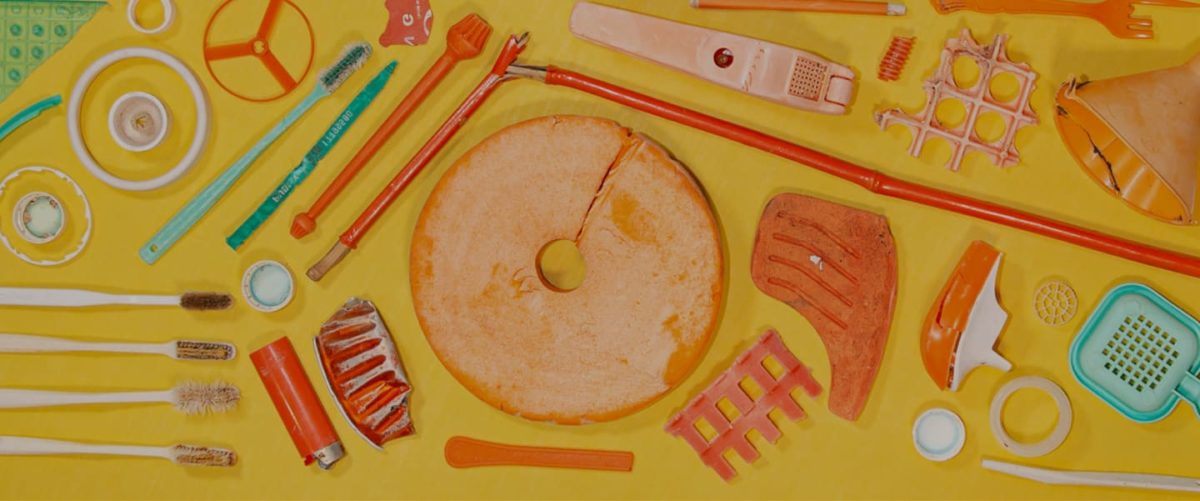
Plastic ocean debris — garbage — washes up at her feet daily. This artist couldn’t sit by and do nothing anymore. This is her work.
Many of us have spent time at the beach in recent years. If you have, it’s nearly impossible to miss a glaring symptom of humanity’s manufacturing problem — plastic. Plastic of every imaginable kind washes onto the shorelines of our world. It comes tangled in seaweed, punctuating the driftwood, and even hiding in the stomachs of decaying ocean life. Smooth or jagged, colorful or not, its presence has become an emblem of humanity’s war with the natural world. The species is pitted against nature’s innate sustainability, certain that man can triumph in the pursuit of capital and comfort. Those of us not so foolish see that folly in the plastic along the beaches. We also face our own feelings about the hugeness of the problem and our sense of powerlessness to fix it.
This is something like what Emily Robinson was feeling during her daily beach strolls. She’s a Hollywood, Florida artist and mother with a background in journalism. She’s been a documentarian about difficult topics, including her beautiful work on loving family members with mental illnesses. That’s how I first met her many years ago.
Recently, I noticed she was sharing fascinating beach finds almost daily. Over time, these beach finds started morphing into curations of beach plastic. Her local news even featured her in a compelling video interview. Since we at Food & Water Watch fight to disrupt the literal pipeline of fossil fuels to plastic, I was hooked. Emily kindly gave me a peek at her process for the series she calls “Peace of Plastic” and what she aims to say with it. Her observations are profound and essential.
“The joy of life is boiled down to having the most fundamental needs met. As we harm the planet, we harm ourselves. And as always, the most marginalized will always suffer first, and the most.”
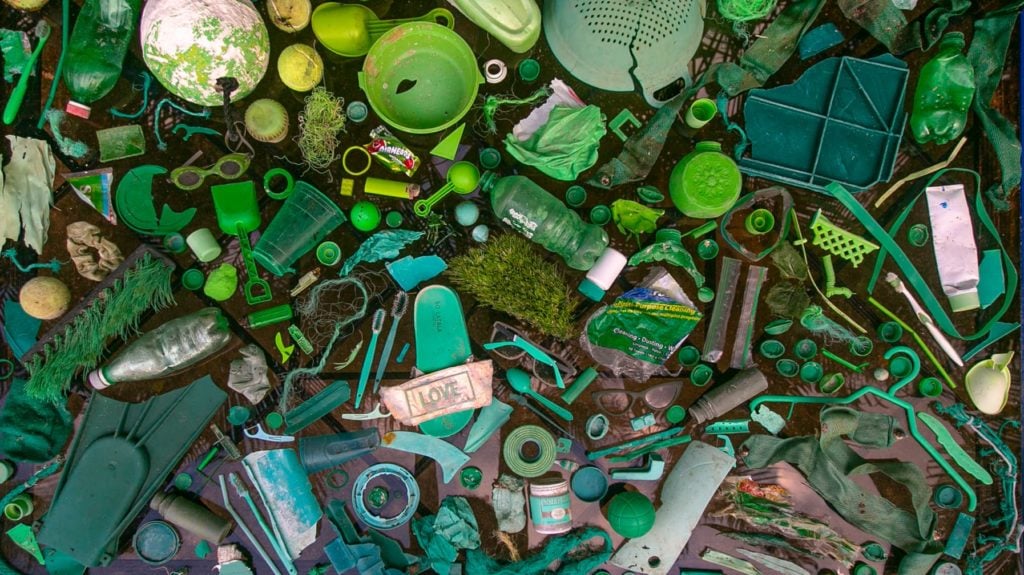
Plastic Pollution At Her Feet, Social Commentary In Her Hands
I asked Emily how this journey began for her.
She said that at first she was a casual beachcomber looking for little natural treasures — shells, seaglass, driftwood. But as her eyes scanned the sand for these, she couldn’t help but notice everything that was there. Suddenly she had an epiphany. As she bypassed a chip bag to scoop up a more desirable find, she got “grossed out.” Not at the trash — at herself. She thought about how she was taking all the beautiful things the Earth gave, and leaving behind all of the ugliness that humans had contributed. Her initial shame gave way to a new mission, and she was inspired.
“I literally began bringing home my garbage finds, then laying them out carefully on my patio table by color. I did this compulsively as another way of telling a story.
…My process was really simple. I was thinking ‘Holy shit! LOOK at all this stuff!’”
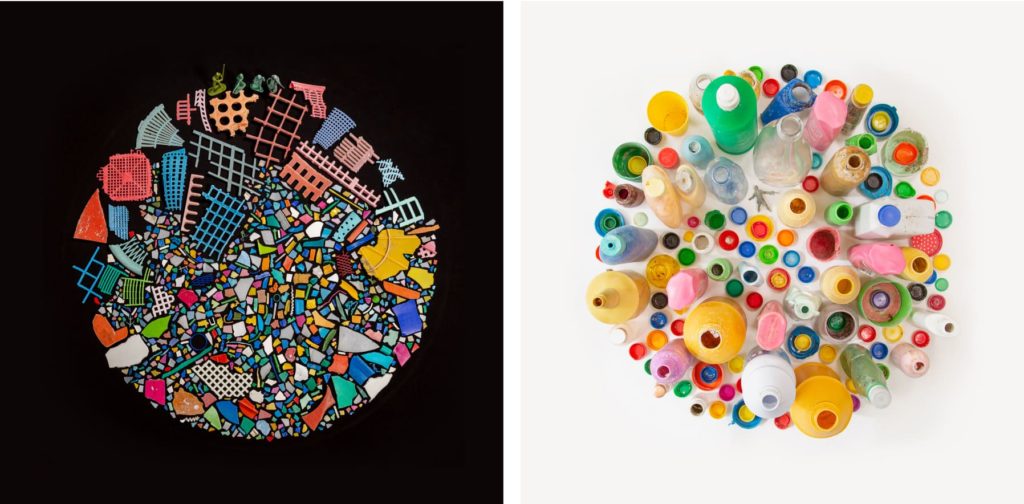
The Big Problem That Plastic Pollution Signifies
Emily says trash, pollution, and climate change have always been upsetting to her. But she says recently she’s begun witnessing local, tangible changes that make it starker. She notes the sargassum seaweed blooms, mainly in the summer months, becoming larger and larger. Tucked into the mounds of rotting seaweed are masses and masses of plastic debris. She says it’s like a giant floating landfill arrives.
“Last year for many weeks the seaweed was filled with probably billions of tiny bits of shredded clear plastic. Once it’s in the water, it’s nearly invisible because its so tiny and clear. Like most people who become ‘woke’ to an issue suddenly, I think I felt really depressed, overwhelmed, angry, and a little hopeless and helpless, too. It’s like waking up to seeing the world being destroyed all around you, and looking around to find most people are still metaphorically ‘sleeping’ and you cannot wake them up to be in the same headspace as you are.”
MAKING STATEMENTS, PEACE BY PIECE
An Artist’s Compulsion To Create Order From Society’s Chaos
Emily Robinson didn’t set out to intentionally make art from her oceanfront scavenging. But the storyteller within her couldn’t be at peace until she took her finds and began composing them in order to say something about our society’s problem with plastic.
SCROLL SIDEWAYS TO NAVIGATE
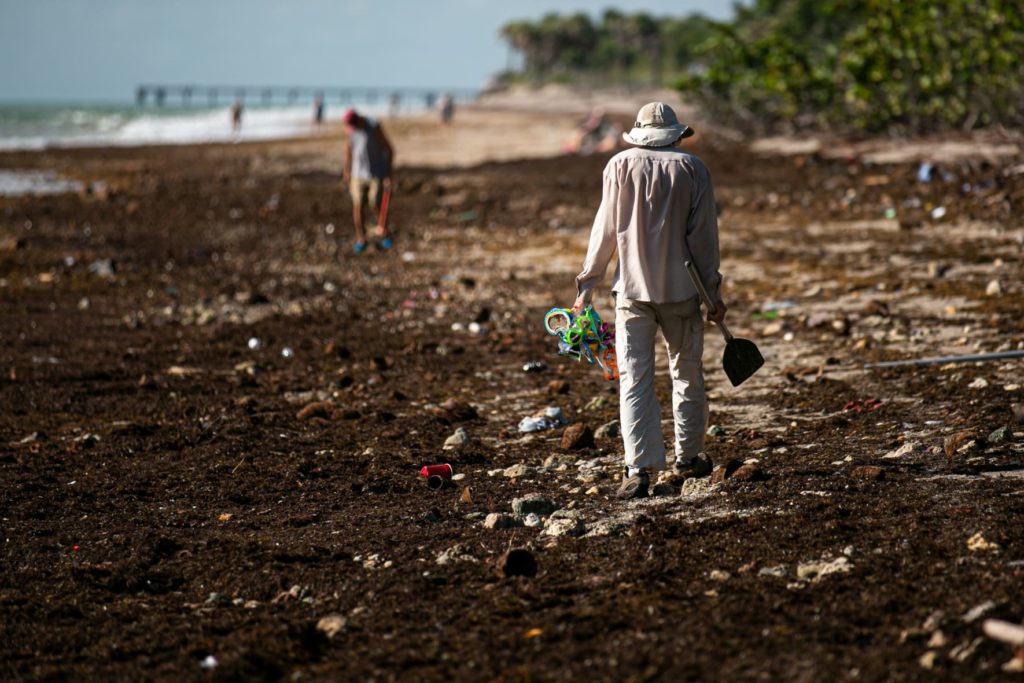
MAKING STATEMENTS, PEACE BY PIECE
“At my core, I am a storyteller. I’ve worked as a newspaper reporter, professional documentary-style birth and family photographer, and done a lot of other activism/advocacy projects in my life. This environmental tragedy unfolding at my feet at the shoreline feels too big and complicated to explain with words or videos or more traditional journalistic approaches.”
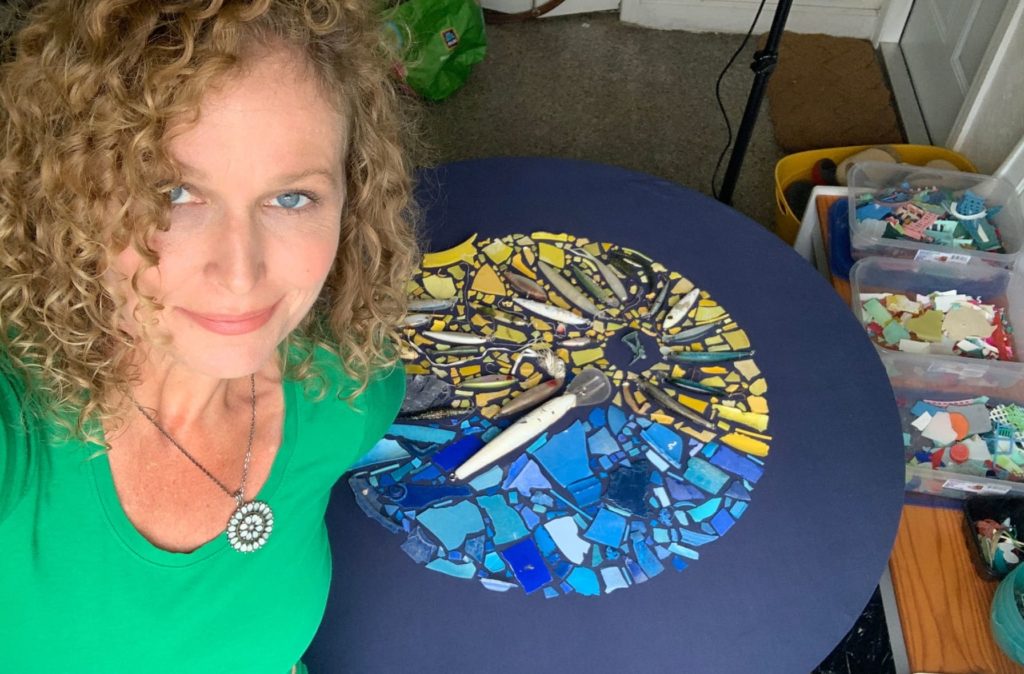
MAKING STATEMENTS, PEACE BY PIECE
“Once we visually examine our garbage in a more curated way, it becomes more inviting to look at and allows us to linger there longer, too. Looking at a pile of gross garbage on the sand is sad, but it’s not that interesting anymore, you know? But laying out every single bit of that pile into something that’s carefully arranged tells a better story, I think.”
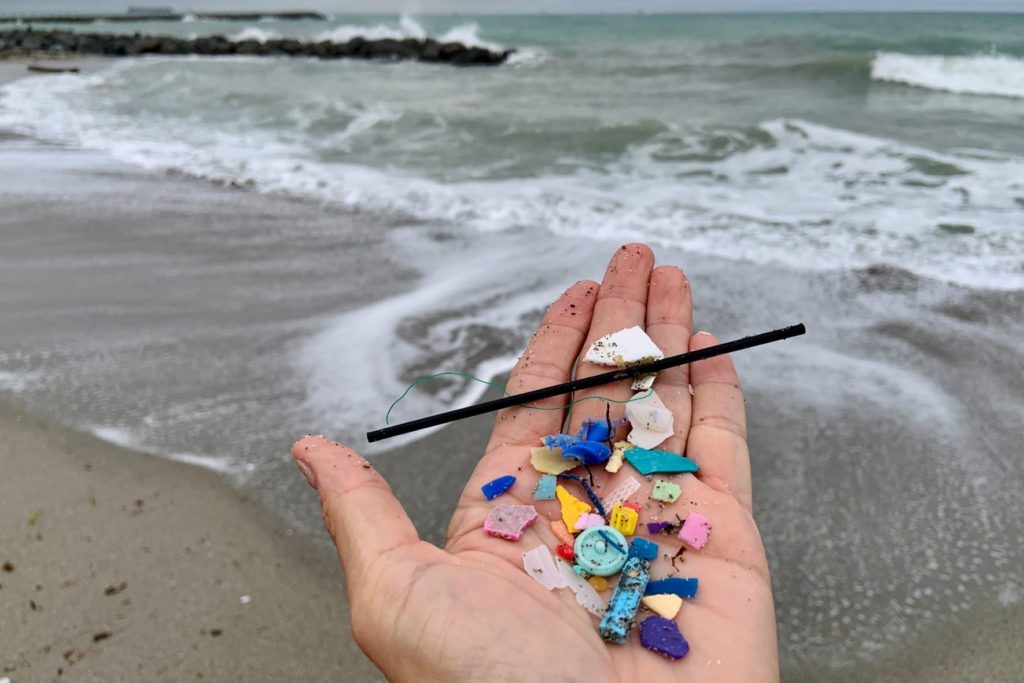
Who Do We Hold Responsible For The Pollution Harming Our Planet?
When I ask her about who’s to blame for this pollution, her answer is both big picture and targeted.
“We are trained to think material wealth is synonymous with success, and that idea is perpetuated by a system that thrives on selling stuff and making money as its primary function. That’s the Too Big answer.
We all want and have too much stuff.
We are all too afraid to NOT have a lot of stuff because then we are perceived as ‘not successful.’
Practically speaking though, the ones most responsible right now for making it all worse are giant corporations and political leaders who are corrupted by the intertwined greed and power of their relationships with those businesses. The more our leaders continue to allow giant pollution-causing corporations to destroy our planet, the more we can all expect to suffer as climate change disrupts our food, water, air quality, ability to afford to live, and expectations to live free of armed conflict.
How Do We Fix The Pressing Pollution And Climate Change Problems We Face?
Emily suggests we urgently need a hero — several, in fact — in order to fix this.
“People are moved to action and change by brave and bold people who aren’t afraid to speak truth to power in big ways. We need people who can speak eloquently and passionately into microphones and megaphones and command rooms and bring people to tears and put them off their iPhones and into the streets.
We need a handful of heroes and an actual revolution of sorts to shut this mess down immediately. It’s that urgent, I believe.”
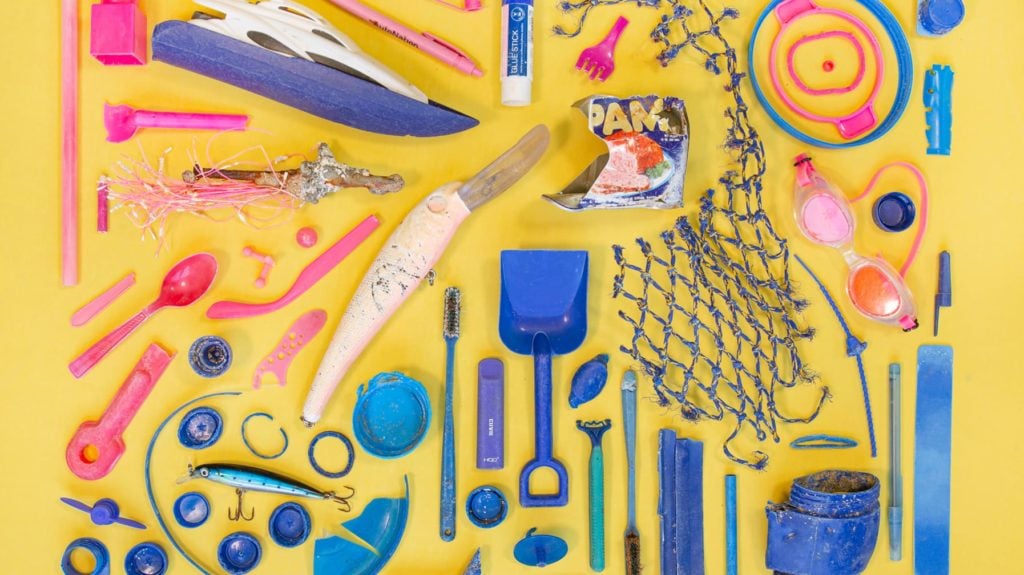
What Emily Robinson Hopes Her Plastic Pollution Art Will Leave You With
Ultimately, what Emily impresses on me is that none of us can fix this alone. Community holds power, and community is what will lead us into a more sustainable paradigm.
“Once I began to understand and have more compassion and forgiveness for my own ignorance and destructive behaviors, I also realized that I am a victim, too, of a system much larger than myself.
I alone did not do all this, and I alone cannot undo all this.
It’s important to begin with compassion first before justice will ever be possible. If we have not forgiven ourselves, we will continue to be obstinate and react emotionally or defensively to problems instead of heading into them with logic and determination.
If we feel shame from within or hatred toward our fellow humans, how can we expect to care enough to make changes toward alleviating suffering? Ultimately, loving the planet and caring about nature and our environment is an act of compassion and love for ourselves. Right now, we all continue to suffer energetically, spiritually and tangibly, during this era of ‘planetary self-harm.’”
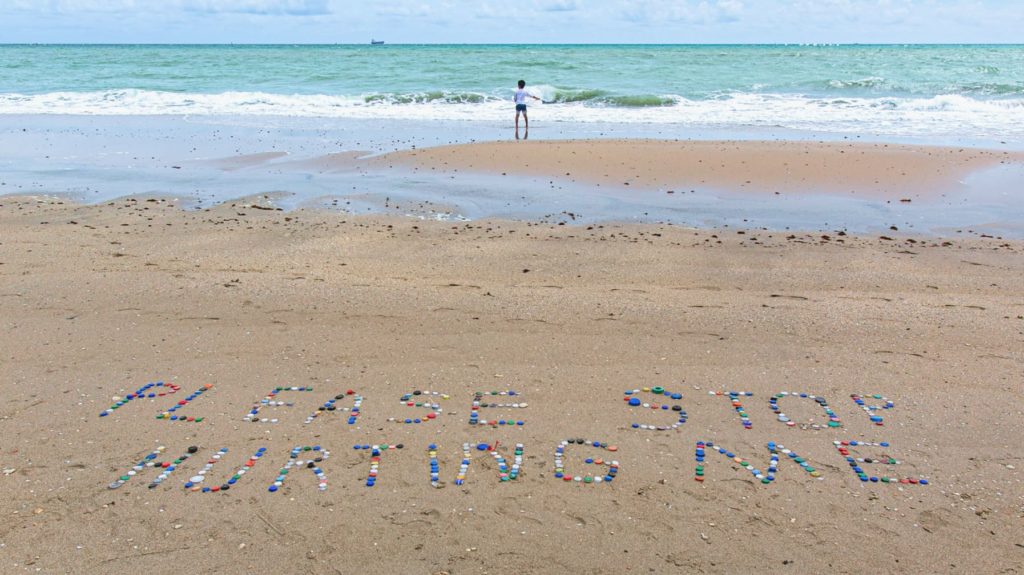
Emily Robinson punctuates this interview with the most important thing of all — hope. She hopes we will be able to make enough changes quickly enough to head toward an era of harmony and peacefulness instead. I share her hope, and ideally you do, too.
Share some hope with your friends.
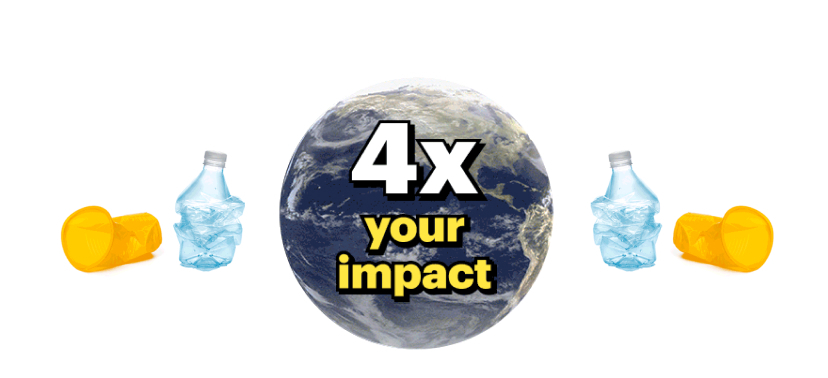
Time to face it —~it’s people or plastics.~We can’t have both.
Become a plastic pollution fighter this Earth~ Day and have your gift MATCHED $3-to-$1!
Enjoyed this article?
Sign up for updates.
TO TOP


